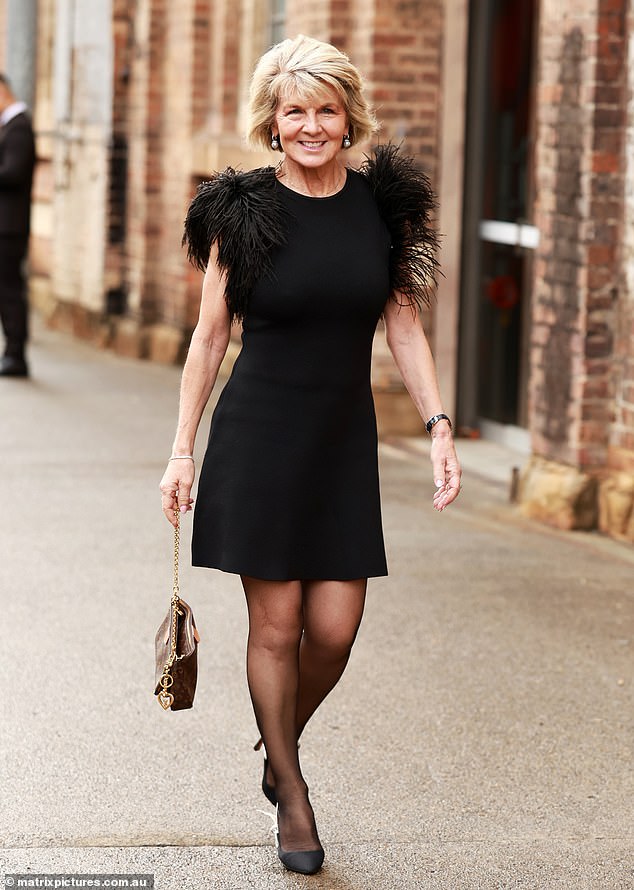Julie Bishop, the former foreign minister, received criticism from PETA for wearing a $2000 black cocktail dress with ostrich feather trim on the sleeves at Australian Fashion Week. PETA slammed Bishop in a scathing letter, stating that feathers are just as cruel as fur, with Melbourne Fashion Week even banning wild bird feathers from its catwalks. The organisation detailed its recent investigations into ostrich farms, highlighting the cruelty involved in obtaining feathers from live ostriches. They suggested that Bishop opt for natural pampas grass instead of feathers for a glamorous and cruelty-free alternative.
The letter from PETA to Julie Bishop emphasized the importance of showcasing sustainable and cruelty-free brands, especially as a leader and role model in the fashion industry. Online platforms such as The Iconic and ASOS have already committed to banning decorative feathers, while Australian label Zhivago, which is favored by celebrities like Gwen Stefani and Cardi B, is completely animal-free and carries the ‘PETA-Approved Vegan’ logo. PETA, whose motto includes the belief that ‘animals are not ours to wear’, opposes speciesism and advocates for a more compassionate approach to fashion.
PETA’s suggestion of pampas grass as an alternative to feathers aligns with a growing trend in the fashion industry towards more ethical and sustainable practices. The use of natural materials and vegan alternatives is becoming more prevalent, with celebrities like Pamela Anderson showcasing cruelty-free fashion choices. The move away from feathers in fashion is gaining momentum, with greater awareness about the cruelty involved in obtaining feathers from animals like ostriches.
Julie Bishop’s choice of a feathered dress at Australian Fashion Week has sparked a conversation about the ethics of using animal products in fashion. The criticism from PETA serves as a reminder of the importance of considering the impact of our fashion choices on animals and the environment. As the fashion industry continues to evolve, there is a growing emphasis on promoting sustainability and compassion in design and production processes. By opting for cruelty-free alternatives, individuals like Bishop can help lead the way towards a more ethical and conscious approach to fashion.
Overall, the controversy surrounding Julie Bishop’s feathered dress highlights the ongoing debate within the fashion industry about the use of animal products in clothing. PETA’s criticism serves as a call to action for designers, brands, and consumers to prioritize ethical and sustainable practices in fashion. By choosing cruelty-free options and supporting brands that align with these values, individuals can play a role in promoting a more compassionate and environmentally friendly fashion industry. As awareness grows and more alternatives become available, the future of fashion may be defined by a commitment to animal welfare and sustainable production methods.


